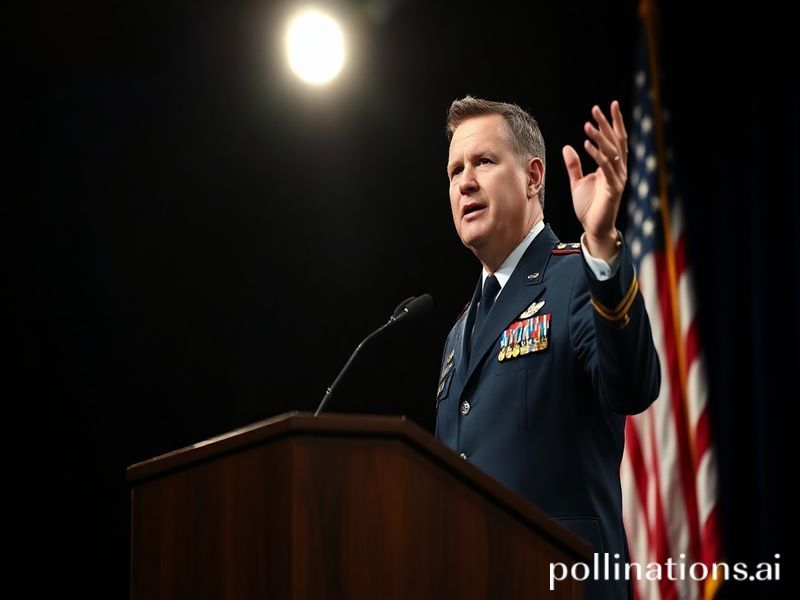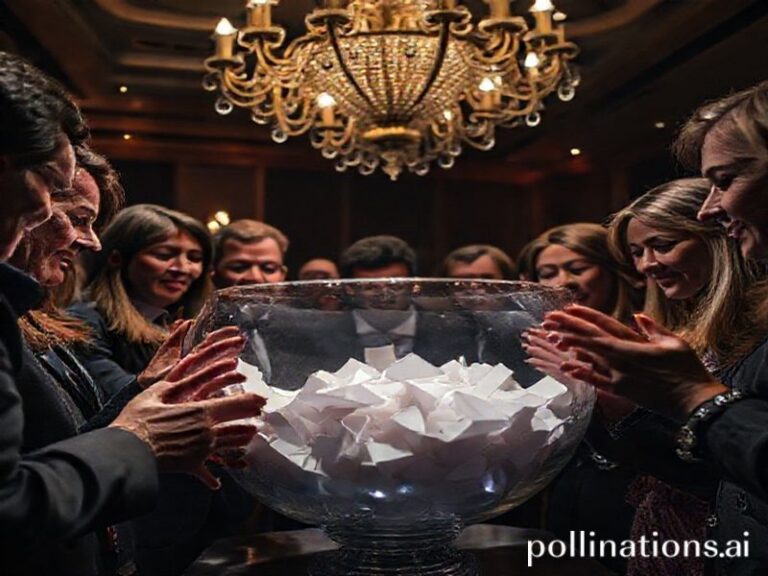pete hegseth
Pete Hegseth, the Fox & Friends Weekend warrior who once accidentally grenaded a colleague’s career (and the colleague), has been nominated by President-elect Trump to run the Pentagon. The news landed like a free round at an O’Club happy hour: American allies choked on their cucumber sandwiches, adversaries opened fresh spreadsheets, and the global commentariat asked the only question that still matters in 2024—surely this is performance art?
Hegseth’s résumé is a Mad Lib of modern American credentials: Princeton by way of Harvard, Bronze Star by way of Fallujah, and seven-figure book deals by way of the military-industrial-ghostwriter complex. Internationally, he is best known for three things: 1) calling NATO “a welfare program with uniforms,” 2) suggesting that the U.S. should “absolutely” bomb Iran back to the Stone Age “if they look at us funny,” and 3) a beard so aggressively symmetrical it could broker its own defense pact.
From Brussels, the reaction was swift. One EU defense official—speaking anonymously because, as he put it, “I still hope to visit Disney World someday”—sighed, “We just finished recalibrating for Trump 1.0. Now we need a new PowerPoint deck titled ‘Trump 2.0: Hegseth Boogaloo.’” European diplomats have begun quietly pricing the cost of moving their American security blanket from the washing machine labeled “Article 5” to the delicate cycle marked “Transactional Bilateralism.”
Across the Pacific, China’s state tabloid Global Times greeted the nomination with the restrained joy of a cat discovering a new laser pointer. An unsigned editorial noted that Hegseth “embodies the final commodification of U.S. strategic thought,” which is Mandarin for “This guy’s going to spend four years tweeting about aircraft carriers instead of counting them.” In Tokyo, planners updated contingency folders titled “What If the Americans Forget Where We Are?” Seoul simply ordered another 3,000 rounds of K-pop diplomacy and prayed the playlist doesn’t skip.
Meanwhile, Moscow—never one to waste a crisis it didn’t create—has already drafted talking points for the UN Security Council: “Russia welcomes America’s return to instinct-driven defense policy. It reminds us of us.” Analysts expect the Kremlin to test early boundaries with a polite little incursion somewhere inconspicuous, say, the Baltic hinterlands during Super Bowl halftime.
The global arms market, ever the impartial spectator, reacted like a slot machine hit by a drunk tourist. Shares of drone manufacturers, private mercenary firms, and beard-trimming multinationals all surged. The Stockholm International Peace Research Institute hastily added a new footnote: “Calculations assume 30 % higher volatility due to potential tweets at 3 a.m. EST.”
Back in Washington, Hegseth’s defenders insist he is more than a cable-news Clausewitz. They point to his veterans’ charity work, his bestselling books, and his uncanny ability to turn any panel discussion into a two-minute monologue about “the woke mind virus.” Skeptics counter that running the world’s largest military apparatus is not the same as running a weekend segment titled “Gratitude & Gear.” Still, the Senate confirmation hearing promises to be a festival of performative gravitas, with senators asking probing questions like “What is your favorite missile?” while the nominee responds with anecdotes about the time he almost reenlisted.
Should he be confirmed, Hegseth will inherit a department managing 2.3 million service members, a $850 billion budget, and alliances that have survived everything from McNamara’s slide rules to Rumsfeld’s snowflakes. He will also inherit the launch codes, a fact that has already inspired a new dark joke in NATO canteens: “Why did the alliance cross the road? Because Pete said the chicken looked French.”
In the end, the Hegseth nomination is less about one man’s résumé and more about the larger spectacle: a superpower auditioning its id for the role of superego. Allies will hedge, adversaries will probe, and the rest of us will refresh our feeds, half-terrified, half-entertained, wondering whether deterrence still works when the deterrent might be live-tweeting his own war plans.
Welcome to the new world order—brought to you by the same network that once cut away from a missile strike for a commercial about cholesterol medication.







